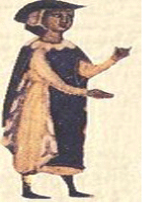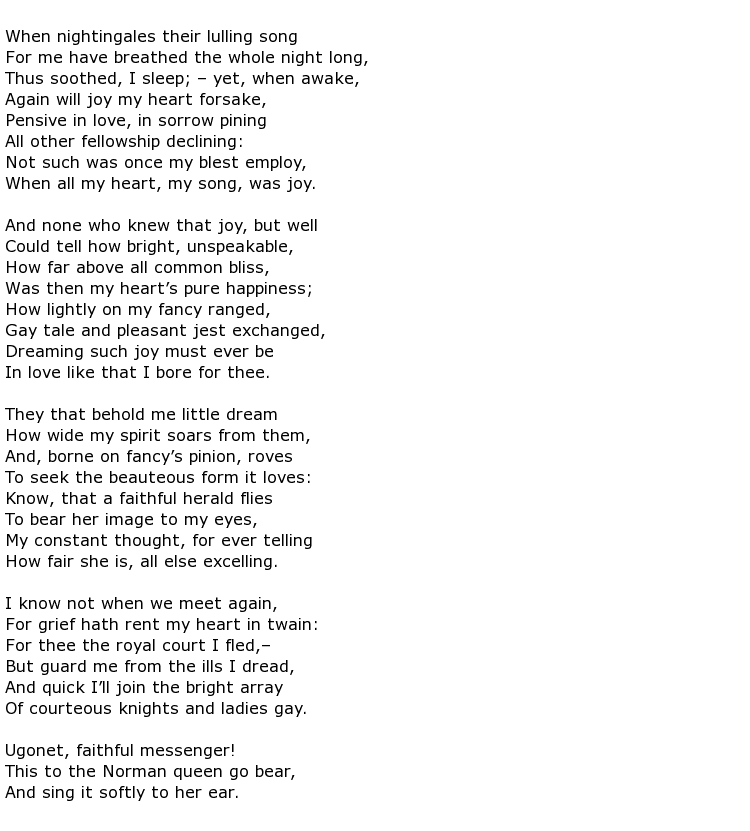 There are a number of recorded variations on this French medieval troubadour’s name. He is variously referred to as Bernard de Ventadour, or Bernart de Ventadorn amongst others. This secular composer wrote lyrical poetry for the art of the troubadour and he is also known as a “Master Singer”. The typical song style of his contemporaries was the cançon and he developed this into something more formal, allowing for sudden turns in the melody or story.
There are a number of recorded variations on this French medieval troubadour’s name. He is variously referred to as Bernard de Ventadour, or Bernart de Ventadorn amongst others. This secular composer wrote lyrical poetry for the art of the troubadour and he is also known as a “Master Singer”. The typical song style of his contemporaries was the cançon and he developed this into something more formal, allowing for sudden turns in the melody or story.
Bernard de Ventadorn was born some time during the year 1150 at Ventadorn castle, where his father worked – he was a baker there. This was in the region of France now known as the Corrèze. Other accounts suggest he may have been fathered by a castle servant or perhaps a soldier. Bernard soon came under the protection of a Viscount, Eble III, and he was soon writing poems for the Viscount’s wife Marguerite. Unfortunately his relationship with this lady moved beyond writing poems and he fell for her. For this he was banished from the town and he travelled to various places, singing at Toulouse and Montluçon.
Some of his poetry suggests a connection with Eleanor of Aquitaine. The story has him accompanying her to England, to the Plantagenet court. He does not remain in England for long though, returning first to Toulouse and being engaged by the Count of Toulouse. Accounts then suggested that he moved on to the Dordogne region where he took on a monastic life in a local monastery. If this was true he will probably have spent the rest of his days there, writing his poetry in quiet contemplation.
A typical theme in his cançons concerned the portrayal of women at first as divine spirits, pure in all of her thoughts and actions. The story soon twists though and she becomes Eve, the source of all of man’s sins. Ventadorn’s use Eve in his stories was usually done in a witty and graceful medium. He was one of many secular composers of that time but, unusually, a great deal of his work survived the Albigensian Crusades which was responsible for the destruction of the troubadour movement and much of the work produced from within it.
Ventadorn wrote at least 45 poems and 18 of them still have the music that he wrote alongside his words. A good example of his work his reproduced here.

Bernard’s influence on trouvère cannot be underestimated; in fact, some say that his was the most important of contributions to the movement throughout northern France. He had many admirers, and many imitators, and his fame went on long after his death at the end of the 12th century. In 1215 a Bolognese professor named Boncompagno alluded to his influence on Latin literature when he said:

Even into the 20th century he was being quoted. The American poet Ezra Pound was a great fan of the medieval troubadours and used some of his lines in The Cantos.
Bernard de Ventadorn died some time during the year 1195, aged 45.

